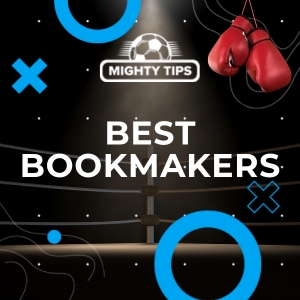Growing up, almost everyone has played or at least seen Super Mario in action. The simple goal—rescue the princess, jump over obstacles, and collect coins—has stayed consistent across decades. But something strange happened along the way. Mario stopped being just a video game. He became a mindset, a philosophy, even a life template.
Today, many people apply “Mario logic” to real-life situations without even realizing it. Small goals. Quick restarts. Bright feedback. Constant leveling up. In the same spirit, modern entertainment, like Leon casino online, also draws inspiration from these playful, engaging systems to create fun, reward-driven experiences.

The “Mario Mentality” Explained
Mario doesn’t dwell on mistakes. He dies. He restarts. He runs again. That’s it.
This simple loop—fail, restart, improve—is what makes the Mario experience so addictive. You don’t fear losing. You know it’s part of the journey. Each fall is temporary. Each coin is a micro-win. This encourages persistence, resilience, and joy in small progress.
In real life, this mentality shows up in many areas:
- Fitness: Small daily habits add up, like collecting coins.
- Careers: Every skill mastered or connection made feels like unlocking a new level.
- Learning: Failing a test or making a mistake becomes just another “Goomba” to jump over.
Gamifying your life with the Mario mentality makes everything less intimidating and more rewarding.
Why Gamification Works
Gamification turns routine tasks into engaging challenges. It’s about using design elements from games—scores, levels, feedback, challenges—and applying them to real-world activities.
Think of it like this:
- A chore becomes a quest.
- A workout becomes a mission.
- A budget becomes a game of strategy.
That’s exactly how many apps and platforms are designed now. Fitness trackers give you badges. Learning apps count your streaks. Online casinos reward consistency and smart decisions.
Leon casino online, for example, doesn’t just offer games—it builds layers of engagement with challenges, bonuses, and themed events. That’s what makes users stay. Not just for the win, but for the journey.
Turning Daily Life into Levels
Look at your daily routine. It’s already structured like a video game. Morning? That’s Level 1. Work or school? Level 2. Break? A bonus stage. The difference is in how you see it.
Here are some ways to consciously bring that Mario-style game structure into your day:
- Break goals into stages
Like Mario’s world maps, your goals should be clear, broken down, and trackable. Big change doesn’t happen in one jump—it’s a sequence of platforms. - Reward yourself for effort, not just outcomes
Mario gets a coin every few steps. You should, too. Finished a task? Grab a coffee. Reached a milestone? Take a walk. Small rewards matter. - Treat failure as feedback
In Mario, death isn’t the end. It’s data. You learn the level. You adapt. In real life, treat mistakes the same way. - Stay curious
Hidden blocks. Secret pipes. Mario’s world rewards exploration. So does life. Try new things. Look in strange corners. Follow the green pipe once in a while.
Life Is More Fun with Power-Ups
What are Mario’s power-ups in real life?
- Energy boosts: Like a good night’s sleep or a cup of strong coffee.
- Support characters: Friends, mentors, and family members who help you get further.
- Time freezes: Short breaks that reset your brain.
- New skins: Dressing well or trying a fresh look can shift your mindset instantly.
These small details help you face tougher levels with confidence. And they remind you that the game isn’t about grinding endlessly—it’s about upgrading strategically.
The Role of Play in Adult Life
As we grow older, we often lose touch with play. Life gets serious. Tasks pile up. Fun feels like a luxury. But Mario never stopped running. And maybe we shouldn’t either.
Play has real value:
- It reduces stress.
- It sparks creativity.
- It strengthens motivation.
By keeping a playful approach—even in work, relationships, or challenges—we create mental space for growth and experimentation. That’s where real progress happens.
And platforms that understand this—whether it’s through gamified learning or entertainment like Leon casino online—keep people engaged longer because they make seriousness optional and fun essential.
You’re Already a Player
You don’t need to buy a console to live like Mario. You’re already navigating maps, dodging obstacles, collecting points, and trying to get to the next level every day.
The key is awareness.
When you start to see your routine as gameplay, something changes. You stop dragging yourself through the day and start running toward the flagpole.
Sure, life is more complicated than a game. But adopting a game-like lens can help you move with more energy and joy.
Final Thoughts
Mario isn’t just a game character. He’s a symbol of movement, curiosity, and cheerful persistence. His world taught us how to keep trying. How to laugh at failure. How to jump, again and again, even if we fall short.
Apply that mindset to your own life. Turn hard tasks into stages. Treat failure like a checkpoint. Celebrate every small win. And above all, don’t forget to play.
Because when life starts to feel like a game—you’re more likely to enjoy the ride.


